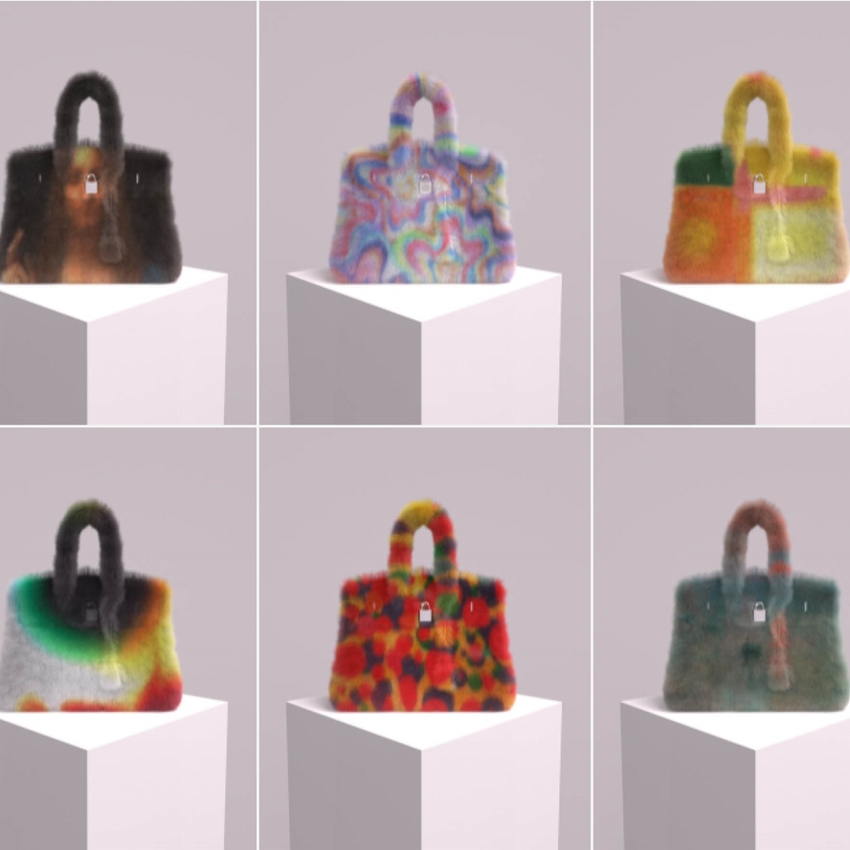As the metaverse continues to evolve as a relevant ecosystem for consumers and creators, understanding the importance of protecting valuable intellectual property is critical. In the developing digital economy, users buy and sell intangible goods, property, and services in gaming engines and online. As this economic system develops, the divide between the virtual world and reality continues to blur. Virtual stores and experiences directly connect brands and services to consumers. Metaverse exchange primarily involves digital assets (games, avatars, etc.), and provides unique platforms for creating, building, and distributing content.
This emerging economy, while novel, compelling and tempting, will propel many retailers into uncharted territory. Licensing and policing copyright infringement will create unique logistical and technical challenges for retailers. The protection of intellectual property concerning the provision of goods and services in a “virtual” world will be especially tricky for brands and retailers.
Nike has filed seven trademark applications indicating its intent to make and sell virtual branded sneakers and apparel. These new trademarks will offer enhanced protection for the brand in this new and evolving virtual platform and indicate how other big-name companies may proceed in protecting their intellectual property in a burgeoning virtual world
To make matters even more complicated, the emergence of non-fungible tokens (NFTs) has spawned a growing number of trademark lawsuits that call into question the very nature of intellectual property rights in a virtual world.
Hermès v. Rothschild
Let’s take a closer look at the NFT trademark dilemma. In January 2022, luxury fashion house Hermès filed a complaint in the New York federal court against Mason Rothschild, a Los Angeles-based interdisciplinary artist and designer, for his use of the Birkin bag name and design. Rothschild creation of NFTs, coined “MetaBirkins,” consists of 100 NFT images mirrored in likeness and design to the iconic Hermès Birkin bag. The case is one of many recent disputes between a fashion brand and an NFT developer. Disputes of this nature will become more common as NFTs being sold and distributed in the virtual world infringe on brand’s trademarks in the “real” world.
The complaint filed by Hermès asserts that the use of the Birkin bag name and design by Rothschild is “causing confusion, and deception among consumers, who may believe that the MetaBirkins are authentic Hermès Birkin bags.” The complaint continues, “the sale of MetaBirkins is likely to cause dilution, false association and other injury to the famous Hermès mark.” The argument focuses on the MetaBirkins’ likeness to its physical counterparts and the suggestion that there may be a connection to the brand therefore exploiting the connection to the famed Birkin bag.
Rothschild’s response to these claims asserted that his NFTs are simply artworks providing commentary “on the animal cruelty inherent in Hermès’ manufacture of its ultra-expensive leather and animal skin handbags.” They are unique and fanciful interpretations and the fur covering the images of the bag is a statement in accordance with this commentary.
The motion to dismiss emphasizes that the NFTs “are not handbags” and “carry nothing but meaning.” They are not commercial or physical assets whereas the Birkin bag is. Rather, the virtual bags are Rothschild’s “speech, art, and expression, all of which are protectable under the First Amendment.” With free speech and artistic expression at the heart of his argument, Rothschild’s position calls into question whether or not the commercial nature of NFTs can be solely considered as art rather than commercial goods. Confused yet?
Michelle Mandelstein, a business attorney and adjunct professor of Fashion Business Law and Licensing at the Fashion Institute of Technology, had some insightful comments on the Rothschild defense, “The Hermès/Rothschild case is in the realm of using artistic expression as their defense…which is not a novel argument. We see this with tangible goods as well. Vans is currently suing MSCHF over their ‘Wavy-Baby’ sneaker. MSCHF’s defense is that they have a First Amendment right to artistic expression. But I don’t buy it. To me, it’s not artistic expression or protected speech in what the First Amendment contemplates.”
I guess we will have to wait and see what the courts think.
Nike v. StockX
The case Nike v. StockX is another ongoing dispute between a famed brand and an NFT developer over the use of a well-known mark. In February 2022, Nike Inc. filed a federal complaint against StockX, LLC, an online resale marketplace, in the Southern District of New York, alleging that StockX is minting and selling NFTs that infringe Nike’s intellectual property. StockX counters, arguing that its use of the images and descriptions of resale products in connection with its Vault NFTs are “no different than major e-commerce retailers and marketplaces who use images and descriptions of products to sell sneakers and other goods, which consumers see (and are not confused by) every single day.”
In layman’s terms, Nike is suing StockX for selling NFTs of images of Nike sneakers without the company’s permission, arguing that these images cause consumer confusion and infringe on the trademarks owned by Nike. The lawsuit also claimed that the StockX NFTs interfered with Nike’s NFT plans.
Mandelstein helped clarify the difference between the Hermès/Rothschild and Nike/StockX cases, “Nike is in a very different realm than Hermès. More people are running after Jordans than they are Birkins, and the Nike mark is certainly more famous, recognizable, and open to customer confusion. StockX’s defense is also very different from the Rothschild defense. There’s an idea that when you purchase an item, the intellectual property rights and trademark rights of that owner are limited once the sale has taken place. So StockX is saying that each physical shoe is rightfully possessed by the owner, so they should be able to use the Nike mark to resell the shoe with no consumer confusion.”
Nike’s ambitions in the metaverse were revealed when the company filed seven trademark applications indicating its intent to make and sell virtual branded sneakers and apparel. According to the U.S Patent and Trademark Office, Nike filed applications for the brands slogan “Just Do It,” the swoosh logo, the “Jumpman” and “Air Jordan” logos, and its brand name “Nike.” These new trademarks offer enhanced protection for the brand in this new and evolving virtual platform and indicate how other big-name companies may proceed in protecting their intellectual property in a burgeoning virtual world. Nike, clearly a frontrunner in the NFT race, has been thinking ahead to protect its IP. That said, it looks like it could be a full-time job chasing down all the Nike NFT wannabes.
Uncharted Waters in the Metaverse
Cases dealing with NFTs and trademark infringements are unprecedented and, given the unique set of circumstances at hand, will guide the way on identifying key intellectual property issues surrounding NFTs, especially when the NFTs are tied to physical goods.
Both the Hermès and Nike lawsuits are among the first that question the intricacies of NFT rights, and may provide greater clarity in a currently hazy area between infringement and fair use of NFTs and physical products.
Such developments are notable considering that the uncertainties involved in protecting a brand in the swiftly-developing metaverse. The outcome in these cases may provide a blueprint to how courts should proceed when dealing with matters than involve both the real and virtual worlds.According to Mandelstein, however, there might not be much of a difference in terms of dealing with IP matters in the virtual world versus the physical world, “This is going to come up more and more because it’s uncharted territory. In spite of the very digital world we live in, when we hear ‘metaverse’ or ‘digital’ or ‘online’ we get very nervous. But I’m not sure that any protective step you would take is any different than a step you would have already taken in the physical realm. I don’t know if the mechanics of this digital sphere will really be that different, or if this is just a new layer to all of it. It’s like if you were only doing business in Europe and now suddenly wanted to expand into Asia, you would expand your team to make sure you were taking the necessary steps and precautions. I think the metaverse is just a new ‘geographic’ problem and that’s all. Retailers have stores in NYC, LA, Miami, and now… the metaverse.”



